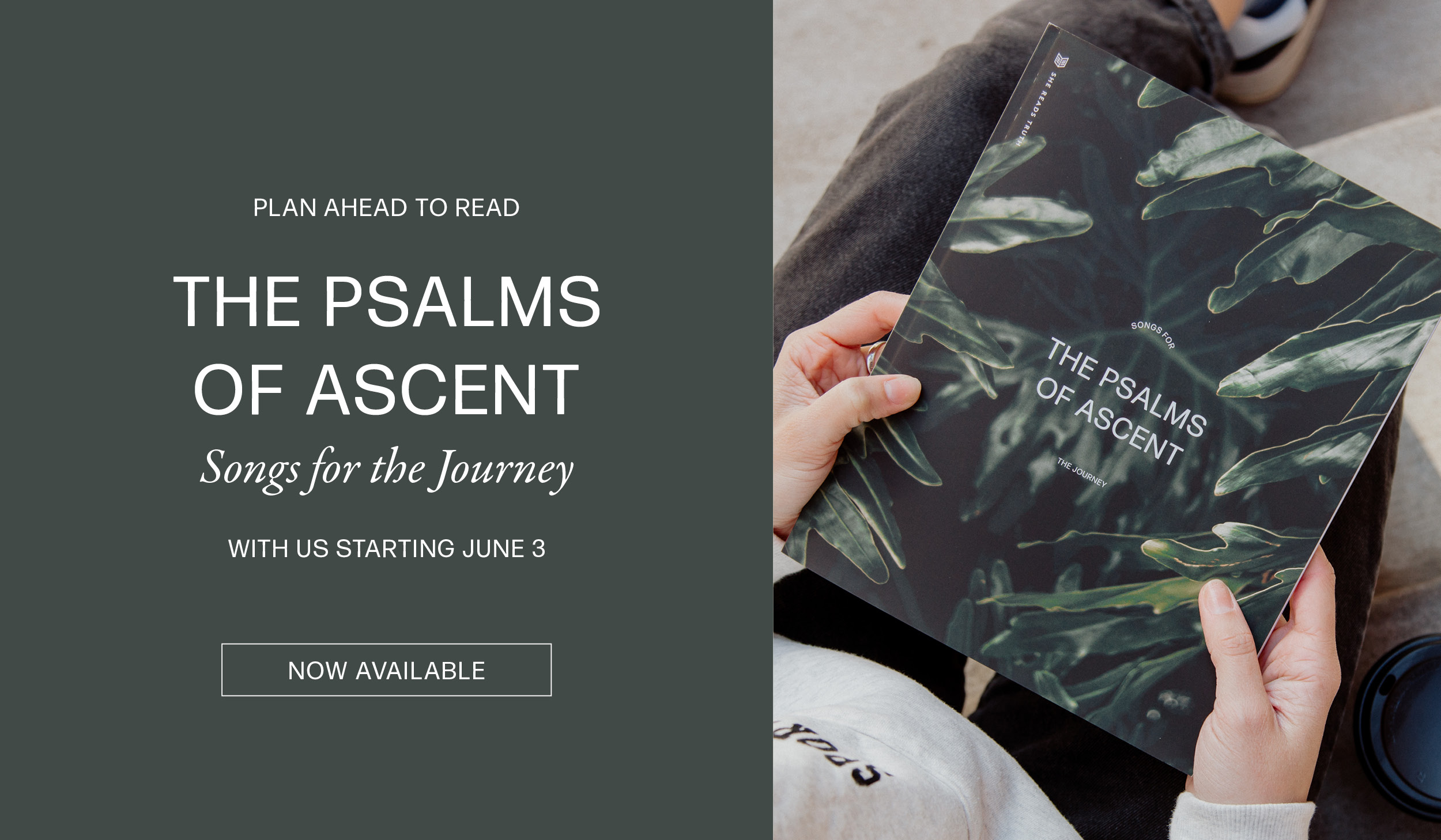Text: Song of Songs 5:1-16, Psalm 128:1-6, Colossians 3:12-17
Love makes me uncomfortable. It makes me feel vulnerable and exposed, like the whole world can read my innermost thoughts. Love catches me off guard, it clouds my decision-making, it questions my motives. Love causes me to frantically build walls, and then love tears them all down. Love feels risky. I’m uncomfortable with risk.
In chapter 5 of Song of Songs, our young couple is newly married and experiencing all the highs that come with that emotional milestone. But, as is true with human love, the highs are accompanied with lows, the pendulum of emotion often swinging dramatically between the two.
Many scholars believe this passage to be the description of a dream. So while Shulamith may not literally be searching the street for her love or beaten by the city guards, her vivid description helps us understand her emotional state. Her deep love for Solomon makes her feel euphoria, that “intoxication” with love promoted by the narrator in 5:1, as well as desperation, the lovesickness that comes with these overwhelming feelings (5:8).
The part that intrigues me most about this passage is what Shulamith does with this range of emotion. She does not camp out in either extreme, but rather chooses to confirm, once again, her love for her beloved. Even amid her emotional struggle, she recounts her bridegroom’s attributes, summing them up in one telling declaration: “This is my love, and this is my friend” (5:16). She returns to and affirms their love, despite the vulnerability it demands.
Is this picture of the “work” of love—this constant turning and returning when emotions run awry—what we expect when we think of love and happiness? I’m not sure it is. Take Psalm 128, for example. Too often when I come to Scripture, I want to sit in a safe place like verse 2: “You will be happy, and it will go well for you.” Great! Let’s stay here, yeah? But the psalmist makes it clear that true happiness is not a destination, a place where we arrive and set up camp. Instead, he exclaims, “How happy is everyone who fears the Lord, who walks in His ways!” (v.1).
Happiness involves a posture of fearing and following God. He is the God who teaches us that love is active, not passive; the God who made the ultimate demonstration of His love by laying down His life for ours (Romans 5:8).
This world is passing away, and even those vows exchanged between a couple hopelessly in love, like our bride and groom in Song of Songs, aren’t certain (Matthew 24:35). Promises of love and the realities of relationship involve emotional and circumstantial trials, with bright highs and dark lows. Only the vows made by God Himself are certain to last.
The good news is, God did make vows to us. Those vows are called a covenant, and Christ is our down payment of its fulfillment (2 Corinthians 1:21-22). We can love one another because He loved us first (1 John 4:19).
God’s love for you and me is more than a feeling; it is a choice. He planned, from the beginning of time, to rescue us from sin and darkness, from false loves and shame. Even in our most intimate of relationships, we rely on Christ’s perfect love to enable us to love—today, and tomorrow, and all the days after that. Thanks be to God.



Your website is amazing! I enjoyed reading what you had to say. You saved me a lot of hassle just now. Do not get afraid to spread your thoughts. I appreciate you.
https://8tracks.com/users/techXPdquJA1A
“…God who teaches us that love is active, not passive.” This line touches my heart today. My husband and I have been married for almost 8 years – together for 12 – and we have certainly had our angry moments toward one another. We’ve been able to keep going forward by making the active choice to love each other like God loves us. This is such a good reminder, making the active choice, even when it’s difficult!
“I see your site needs some unique & fresh content”
https://www.kickstarter.com/profile/1867837168/about
I think it’s so wonderful to really and truly understand the covenant love we have with Christ. I think we tend to just skim over the word covenant. It’s lost its weight it seems. But when we focus on that word, that promise given to us. And when we understand what true covenant love means, it should humble us and bring such a joy to our lives!!
http://www.littlelightonahill.com
My interest in this text was renewed recently. My husbands aunt (who has become like an aunt and a mentor to me) has never married and does not have children. She is in her 50s and is still waiting for the husband she prays the Lord will bring. I am so blessed to watch her wait on the Lord, trusting him completely with her future. But in all of that – she LOVES Him, LOVES the Song of Songs and knowing how her God loves and pursues her in such an intimate way. I have been inspired to seek out what this Love looks like for myself. I am like many of the women who have said this book is not their favorite, or that the romance and imagery of this book does not capture them thoroughly. I have an earthly husband whom I love – who is wonderful and handsome and often – I forget I was made for a GREATER love. I have loved this study into the heart and mind of God for his bride, and the revelation that my perspective on romantic love, even intimacy with my husband, is more sacred than I currently understand.
I’d constantly want to be update on new posts on this website , bookmarked! .CosmosEntertainment
Does anybody have thoughts on the promises of Psalm 128? Literally taken, they are not always true. I know people who fear the Lord and yet have terrible family struggles. My study bible describes the theme of the Psalm as God is the true head of the home and that this Psalm was sung at Israelite marriages and called the marriage prayer. Indeed He is the true head. But what does it mean when a man fears the Lord but his wife is not a fruitful vine and his children are not like olive shoots around his table? .
Regarding struggles of believers: Happiness in this life is not based on our outward circumstance but inward graces. With Christ, the godly man or woman can weather the most terrible of storms, as many have done in the past and continue to do. Yet, God remembers our frame, that we are dust, and that there is still grace to be had when we sit in dust and ashes, proclaiming our nakedness before Him.
Regarding the fruitful wife: If God allows, this verse is literal for those blessed by God with one or more children. Every child is a peculiar, unmerited gift from the good Lord and should be treasured as such.
However, even the barren womb can be a fruitful vine. A woman who serves others in practical and spiritual means can be the mother of hundreds and thousands, especially as she grows in true wisdom and knowledge. She will be fruitful if she seeks consolation in her God and Saviour. She will be made useful for His Kingdom when she will not run after the glittery vain things of this world. In a manner, this woman will be more fruitful than the woman who bears ten children and cares not for their spiritual state.
A comfort to those who mourn their barrenness: God knows your heart and what you desire and what you need. We do not always know why He allows this but it is good to remember we cannot see the end from where we stand. He will provide either the literal fruit or the spiritual fruit. Let him decide as we acquiesce. Never, ever blame Him for what happens in our fallen world and live in hope that He is good and right and true and will be so to you. Our usefulness in this sinful world is totally dependent upon His grace and we will only be fruitful when we are so.
Let whatever state in which we find ourselves find us in contentment with our portion and hungry only for more of Himself.
Marketing for the Fitness Industry
http://www.WGyZkUzpeB.com/WGyZkUzpeB